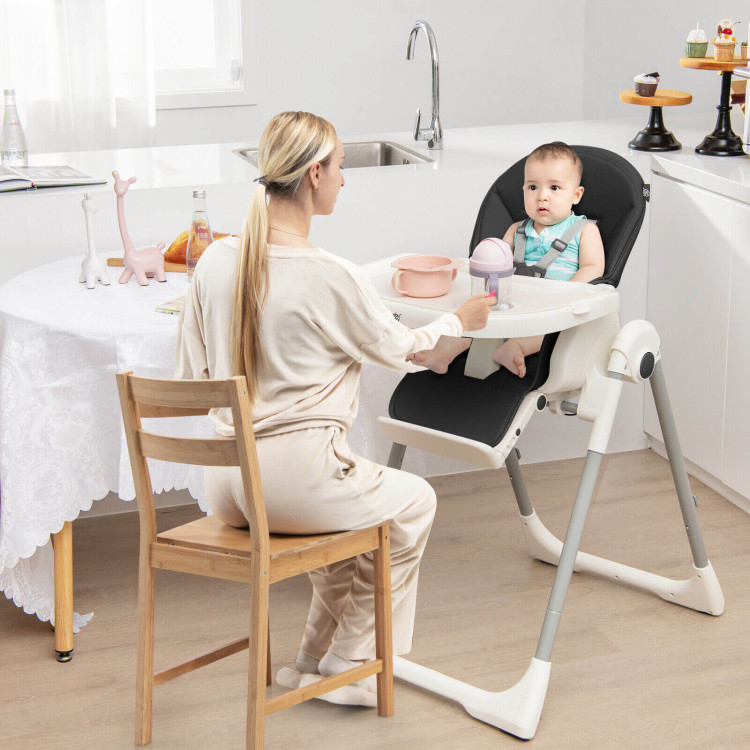From Sibling Rivalry to Sibling Revelry: A Guide to Preparing Your Child for a New Baby
Do you remember that feeling? The overwhelming surge of love mixed with a hefty dose of “Oh my gosh, how are we going to do this?” when you found out you were expecting your second (or third, or fourth!) child? It’s thrilling and terrifying all at once. We’re knee-deep in tiny socks, endless laundry, and baby powder aroma. But amidst the chaos of welcoming a new baby, it’s easy to overlook the emotional earthquake shaking your firstborn’s world.
Think about it: Their reign as the sole focus of your affection is over. Poof! Just like that. No more monopolizing Mom and Dad, no more being the center of the universe. It’s a tough pill, even for the most straightforward child. But fear not, fellow parents! We can navigate this transition gracefully and turn potential sibling rivalry into a beautiful, lifelong bond.
Before the Baby Arrives: Laying the Groundwork
Announcing the News: Making it Special for Your Child
Imagine this: your child’s eyes widen in surprise, their face breaking into a grin (or maybe a look of utter bewilderment!) as they learn they will be a big brother or sister. This moment deserves more than a casual “Guess what?” It’s a big deal, a life-changing event that deserves a special announcement.
- Get creative: Forget the boring old “we’re having a baby” talk. Bake a cake with “The Big Sibling” scrawled in frosting, wrap up a baby doll as a “practice baby,” or create a scavenger hunt leading to a final clue revealing the big news. Make it fun and memorable about them. Ask them to help you decorate a room for the newborn baby, or let them pick out nursery furniture. This will create joyful memories that last a lifetime and make them feel part of the journey.
- Keep it simple: Pregnancy and childbirth can be complex concepts for young minds. Explain it in age-appropriate terms. “Mommy has a tiny baby growing in her tummy, and soon you’ll have a little brother/sister to play with!” works wonders for toddlers. Older kids might enjoy looking at ultrasound pictures or feeling the baby kick.
- Answer their questions: Be prepared for an onslaught of questions, some insightful (“How did the baby get in there?”), some hilarious (“Will the baby come out with a mustache like Daddy’s?”). Answer honestly and openly, addressing any fears or misconceptions. This is your chance to build trust and excitement.
Involving the Siblings: Little Helpers, Big Roles
Children, even toddlers, crave purpose and belonging. Involving them in preparing for the upcoming baby not only builds excitement but also fosters a sense of responsibility and joy.
- Nest together: Transform your child into your official “nursery assistant.” Let them help decorate the baby’s room, pick out adorable clothes, or even “help” assemble baby furniture (screwdriver supervision is a must!).
- Play pretend: Role-playing with dolls or stuffed animals allows your child to practice caring. Encourage them to feed, change, and comfort their “baby.” You might be surprised by their tenderness and instincts.
- Read together: Explore the world of newborn babies through books. “I’m a Big Brother/Sister” books are a fantastic starting point, offering relatable stories and colorful illustrations. Take your child to the library and let them choose books they are interested in.
- Doctor visits: If age-appropriate, consider bringing your child to a prenatal appointment to hear the baby’s heartbeat. It makes the whole experience more real and tangible. Plus, it’s a chance to bond with the baby before they arrive.
Managing Expectations: Honest and Open Communication
Open and honest communication is essential when preparing your child for the baby’s arrival. A newborn baby disrupts the family’s routine. Discussing what to expect with your child can better prepare them for the changes ahead.
- New routines: Explain to your child that the baby will require much attention, and things may look different. Reassure them that their needs are still essential, and you will find ways to spend particular time with them amidst the chaos. For example, you can say, “Mommy might be tired, but we’ll still have our special story time before bed.”
- Baby behavior: Being honest with your child about babies is essential. Explain that babies cry, sleep, and can’t play games or build Lego castles yet. This will help them manage their expectations and prevent disappointment.
- Acknowledge feelings: It’s normal for children to experience a range of emotions when a new baby arrives, including jealousy, insecurity, and resentment. Acknowledge these feelings and reassure them of your unwavering love. Create a safe space for them to express their emotions without judgment. This understanding and support can help you navigate these emotional waters with your child.
Adjusting to Life with a Newborn: Tips for Smooth Sailing
Congratulations! Your baby is here! Prepare yourself for sleepless nights, endless diaper changes, and love so fierce you feel overwhelmed. But remember, your firstborn is navigating a new world and needs you now more than ever.
One-to-One Time: Keeping the Connection Strong
It’s easy to let quality time with your older child slip through the cracks in the whirlwind of feeding, changing, and soothing a newborn. But trust me, it’s worth fighting for.
- Schedule it: Even 15-20 minutes of dedicated playtime can make a difference. Put it on your calendar, set a reminder on your phone, and do whatever it takes to make it happen. This is your chance to reconnect, laugh, and remind your child they’re still a priority.
- Maintain routines: Amidst the upheaval, sticking to familiar routines as much as possible, like bedtime stories and mealtimes, provides a sense of control and security in a world that suddenly feels different. It’s a way to maintain a sense of normalcy for both you and your child.
- Encourage independence: Now’s the right time to encourage independent play. Set up an area with their favorite toys and books, or create a play corner with activities they can do independently. This gives you a much-needed break and fosters your child’s creativity and self-reliance.
Including the Siblings: Creating a Team
Instead of viewing your older child as a bystander, involve them in caring for the infant. It fosters bonding and responsibility. Plus, it’s a fantastic way to teach empathy and compassion.
- Age-appropriate tasks: Even toddlers can participate! They can fetch diapers, sing to the baby, or gently stroke their head. Older children can assist with bath time or getting dressed (with supervision, of course!). Make them feel like valuable teammates.
- Gentle interactions: Encourage gentle touch and soft voices when interacting with the baby. Model appropriate behavior and supervise closely to ensure baby safety.
- Positive reinforcement: Praise helpful behaviors and love expressions. “You’re such a caring big sister! The baby loves it when you sing to her.” Positive reinforcement goes a long way in building confidence and encouraging positive interactions.
Addressing Challenging Behaviors: Patience and Understanding
Regressions, tantrums, and attention-seeking behaviors are ordinary after a newborn arrives. It’s easy to get frustrated, but remember that your child communicates their need for love and attention in the best way they know.
- Understand the root cause: Instead of viewing these behaviors as defiance, try to understand the underlying emotions. Your child might feel overwhelmed, insecure, or simply missing the connection they used to have with you.
- Positive redirection: Instead of punishment, redirect negative behaviors to positive alternatives. “I know you want to play with the baby’s toys, but those are for babies. Let’s build a tower with your blocks instead!”
- Avoid comparisons: Never compare yourself to your children. “Why can’t you be more like your brother?” is a surefire way to breed resentment and damage self-esteem. Children are unique and deserve special treatment.
Activities to Strengthen Sibling Bonds
Building a solid sibling bond takes more than sharing a living space. It requires intentional effort and engaging activities that foster connection and create shared memories.
Pre-Baby Activities:
- Welcome home gift: Have your child create a special gift for the new baby, like a drawing, a decorated picture frame, or a handprint art project. It’s a tangible expression of love and anticipation.
- DIY baby gear: Get your hands dirty! Decorate onesies, make a mobile, or paint a toy box. This collaborative effort builds excitement and creates ownership and involvement.
- Memory Lane: Take a trip down memory lane by looking at baby pictures of your older child. Talk about their arrival, first steps, and favorite baby toys. It reminds them that they were once the center of attention, too.
Post-Baby Activities:
- Helping hands: Allow your child to help with age-appropriate tasks like fetching diapers, singing to the baby, or gently stroking their head. These small acts of involvement foster a sense of responsibility and connection.
- Storytime: Read to both children, fostering a sense of shared experience and calming the baby with your voice.
- Playtime: The older sibling can interact with the baby in fun and engaging ways through simple games like peek-a-boo and patty-cake.
- Creative expressions: Make artwork or crafts for the baby. Footprint art, handprint cards, or even a simple drawing can become cherished keepsakes and strengthen the sibling bond.
Long-Term Strategies for Harmonious Sibling Relations
Building a strong sibling bond isn’t a one-time event; it’s an ongoing process that requires nurturing and guidance. Here are some strategies to foster a loving and supportive relationship that lasts a lifetime:
Fostering Empathy and Cooperation:
- Conflict resolution: Let’s face it, siblings fight. It’s a universal law. But we can teach our children healthy ways to resolve disagreements. Encourage them to express their feelings, listen to each other’s perspectives, and find solutions. Model compromise and negotiation in your interactions.
- Sharing and accepting turns: These essential life skills don’t come naturally. Ensure you model sharing and turn-taking in your behavior and give them opportunities to practice. Use games, toys, and everyday situations to teach cooperation and fairness.
- Teamwork: Encourage collaboration through games, chores, or creative projects. Working together towards a common goal teaches children cooperation and strengthens their bonds. Plus, it’s more fun than tackling tasks alone!
Celebrating Individuality:
- Unique qualities: Recognize and appreciate each child’s unique talents and interests. Avoid comparing them or expecting carbon copies of each other. Encourage them to pursue their passions and celebrate their individuality.
- Individual expression: Provide opportunities for each child to express themselves creatively, whether it’s through art, music, sports, or any other activity that sparks their interest. This fosters self-confidence and allows them to shine in their unique way.
- Sense of belonging: Create a family environment where each child feels loved, valued, and accepted for who they are. Foster a sense of belonging by spending quality time together, celebrating achievements (big and small), and creating family traditions that strengthen their connection.
Common Concerns and Solutions: Navigating the Challenges
Bringing a newborn home can be challenging, but here are some tips to help you get through it:
When a baby is born, regression is expected. Your potty-trained child might have accidents suddenly, or your independent sleeper might insist on crawling into your bed. Don’t worry, it’s usually temporary. Encourage your child with extra love and reassurance, avoid punishment, and emphasize positive reinforcement.
When a child behaves in an attention-seeking manner, such as tantrums or acting out, they seek connection. It is essential to understand their emotions rather than scold them. Take the time to spend quality time with them and praise them for good behavior.
There will be sibling squabbles, but constant bickering can drain your energy and create a tense atmosphere. Teaching conflict resolution skills, encouraging sharing and turn-taking, and modeling respectful communication are essential. Separate the children and let them cool down before encouraging them to resolve conflicts.
Caregiving for a newborn and an older child is not easy. It’s okay to feel overwhelmed and exhausted! Don’t be afraid to ask family, friends, or a babysitter for help. Prioritize your well-being, even if it’s just a few minutes of quiet time each day. You can’t pour from an empty cup.
Siblinghood Rewards: A Lifelong Bond
Siblinghood is indeed challenging, but the rewards are immeasurable. Siblings provide companionship, support, and a bond that is invaluable for life.
Studies have shown that siblings make a difference in developing social, empathy, and emotional skills. They can teach each other conflict resolution, cooperation, and compromise and provide a sense of security and belonging, knowing they always have someone to turn to if they need help.
As parents, we foster this incredible relationship. By preparing our children for the arrival of another sibling, we can lay the foundation for a lifelong bond filled with love, laughter, and shared memories.
Conclusion
Having an infant is both a joyous and challenging experience. If you prepare your older child beforehand, you will be able to create a positive sibling relationship. Building a solid sibling relationship is a marathon, not a sprint. You can make a family where love multiplies with each new member with patience, love, and consistent effort.
Enjoy the chaos, cherish the moments, and watch your children form bonds that will forever enrich their lives. After all, isn’t that what family is all about?
Related Posts


























































































